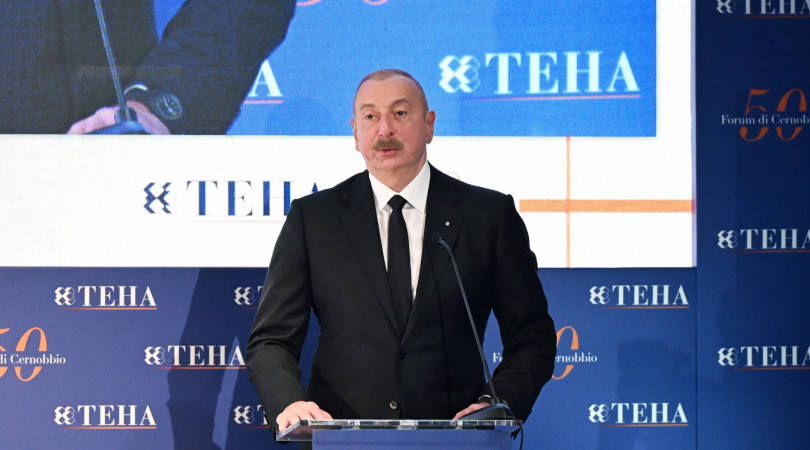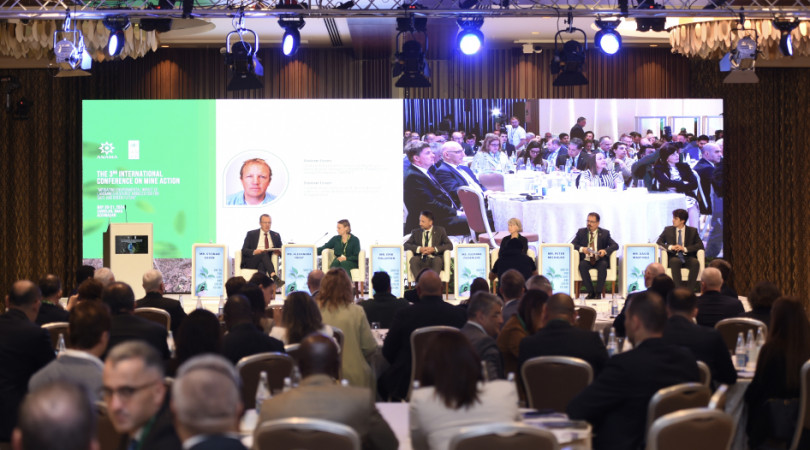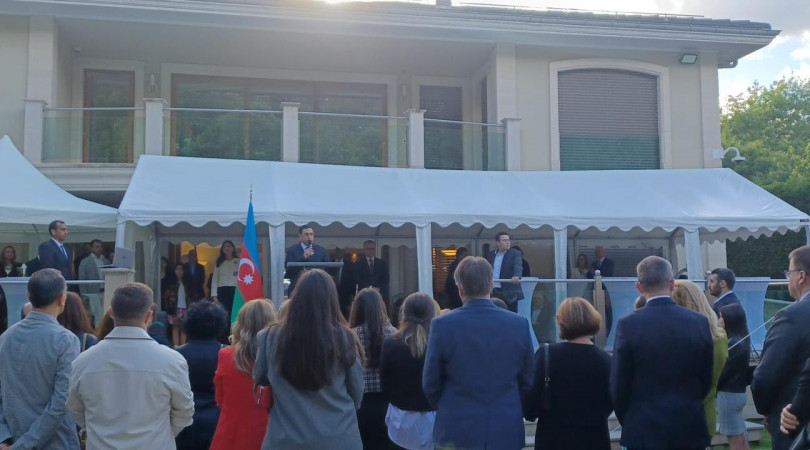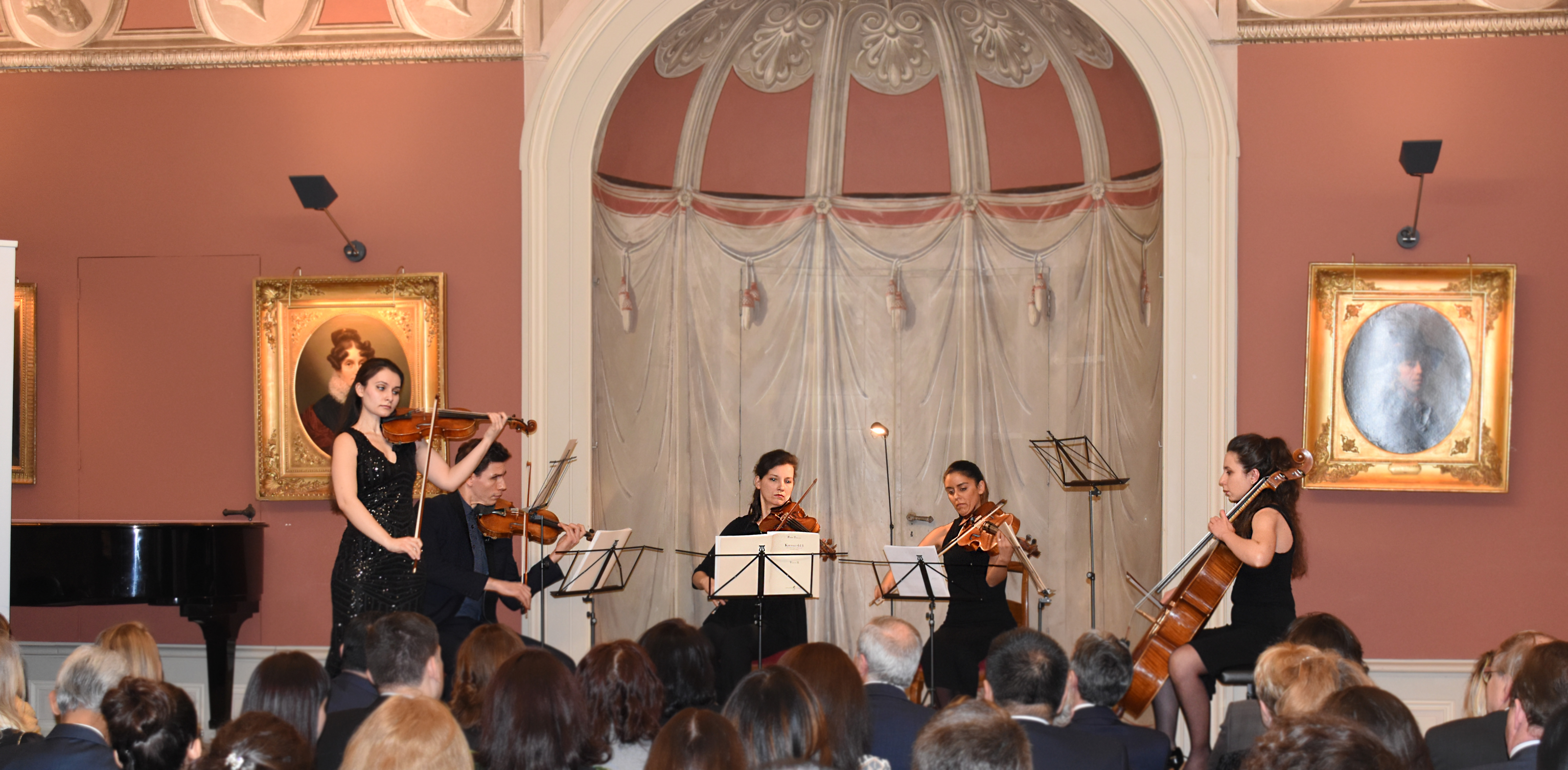Khojaly 25 years on – an evocative musical remembrance held in Geneva
On the 21st February 2017, in Geneva, the Permanent Mission of the Republic of Azerbaijan to the United Nations Office and other international organizations in Geneva, in collaboration with The European Azerbaijan Society, organised a concert in the 19th century surroundings of the neoclassical Palais de l’Athénée to commemorate all of the victims of past and on-going wars around the world.
However, the event paid a special tribute to the memory of the victims of Khojaly massacre, which occurred on the night of 25-26 February 1992 – almost exactly 25 years ago. This was the single worst atrocity of the Armenian-Azerbaijani Nagorno-Karabakh conflict, and 613 civilians - including 106 women, 63 children and 70 elderly people - were brutally killed.
The commemorative concert featured Azerbaijani violinist Nazrin Rashidova, Latvian clarinetist Anna Gagane, and the Rhein-Quartett, a German chamber ensemble. It was held in the presence of about 150 representatives of international organisations, media civil society and the diplomatic community.
The commemorative event was opened by His Excellency Ambassador Vaqif Sadiqov, Permanent Representative of the Republic of Azerbaijan to the UN in Geneva. He reminded the audience of the role of the United Nations in preventing armed conflicts and the importance of the UN in maintaining international peace and security. “After the end of the Second World War, when the UN was created, the international community thought that it would be possible to build a world without conflicts, which unfortunately is not the case, as we can see today. As we look at past and on-going wars, including the war in and around the Nagorno-Karabakh region of Azerbaijan, my fellow citizens remember Khojaly massacre, the saddest episode of recent Azerbaijani history which reminds us that civilians are the first victims of armed conflicts. We have to learn lessons of the past, this is why, tonight, we commemorate all victims of wars and armed conflicts, so that tragic events like Khojaly massacre never happen again.”
Lionel Zetter, Director, TEAS explained: “As Director of The European Azerbaijan Society it would be remiss of me not to mention the on-going war in Nagorno-Karabakh, and in particular I need to highlight the massacre in the town of Khojaly. Almost exactly 25 years ago, 613 men, women and children were cruelly murdered as they fled their homes from Armenian invaders, and many of the survivors of that fateful night remain traumatised to this day. No two conflicts are ever identical, and each new war takes on its own gruesome personality. One thing they all seem to have in common, however, is that it is the innocent civilians caught up in them who suffer the most.”
Throughout this evocative and emotional evening, the overwhelming sense was of loss and the umbilical connection of Khojaly, town in the Nagorno-Karabakh region, with Azerbaijani music. Many of the greatest Azerbaijani classical composers – all of whom combined the microtones of mugham with western classical music – were born or had familial connections to Nagorno-Karabakh. The father of Fikret Amirov was a khanende (mugham singer) from Shusha, Nagorno-Karabakh, and this was evident in his emotional Elegie, performed at the start of the concert by the Rhein-Quartett.
The Rhein-Quartett continued with a series of compositions by famous Western and Azerbaijani composers. Orientale, the work of composer Enrique Granados – himself a victim of the First World War – a sublime Spanish style composition, was performed in a very evocative manner. The concert went on with particularly emotive Azad Bir Qusdum by Afrasiyad Badalbeyli. It was followed by the plaintive traditional song Berzeni, by Khayyam Mirzazade, octogenarian Azerbaijani composer, who studied under Gara Garayev.
The concert concluded with Pierre Thilloy’s Khojaly 613, a tone poem representing the horrors of that fateful night. This harnessed the power of violin, clarinet and string quartet to evoke the sounds of marching, screams, machine-gun fire and folk music themes to devastating effect. It featured Azerbaijani violinist Nazrin Rashidova and Latvian clarinetist Anna Gagane.
Pierre Thilloy, introducing his piece Khojaly 613 commented: “Khojaly events made me understand what it means to be an artist committed to a cause. Now, the impact of ‘Khojaly 613’ has grown beyond me, and is so powerful to make people think about what happened 25 years ago in this small town, and to convince it is time to look for peace.”
Despite the passing of four UN Security Council Resolutions condemning the military invasion of Azerbaijani territories and demanding complete withdrawal of occupying forces, Armenia continues to occupy nearly 20 per cent of Azerbaijan, including the Nagorno-Karabakh and seven surrounding regions. As a consequence, approximately one million refugees and internally displaced persons who forcibly left their homes in Armenia and occupied Azerbaijani territories are spread across Azerbaijan, and have only one wish – to return to their homes and lands in peace.



















